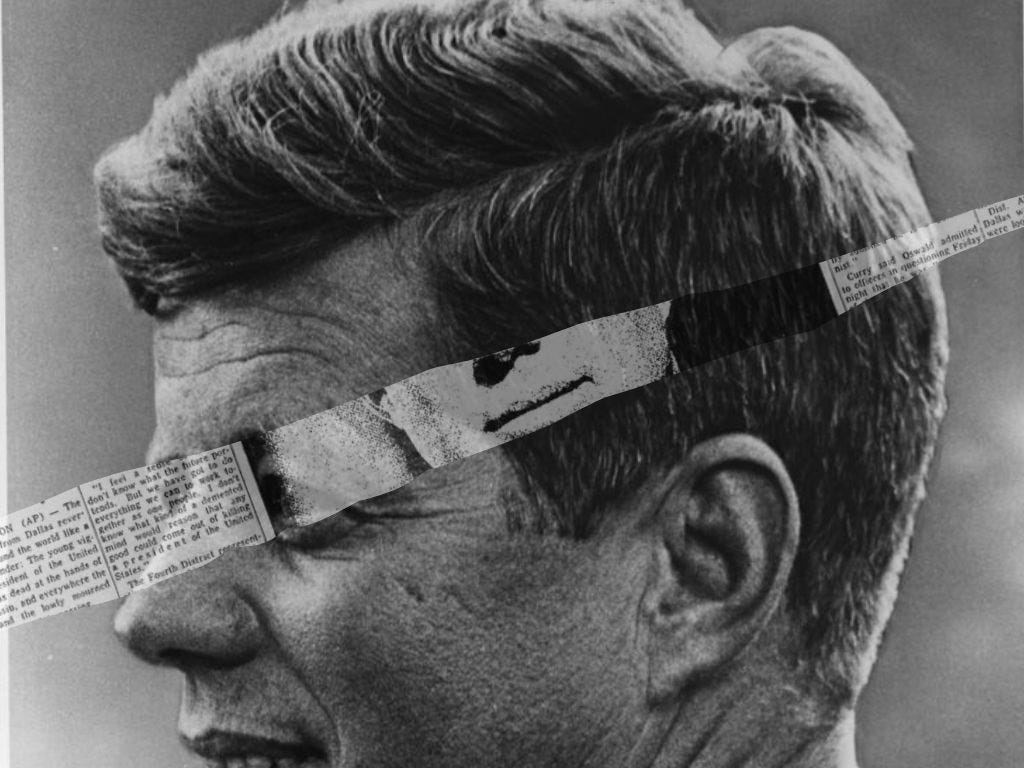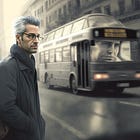What can we in the future say for a long ago November day on which a schoolboy stood on the edge of the playground and watched his classmates mock a murder in Texas far away from the California desert?
President is dead. Shot in the head.
The children’s chants infected the air. The boy stood alone. A nation shook itself and shuddered as a great chill ran down the central spine they all shared. Something cruel, something heartless had crossed the border of decency they once guarded, enthralled in zeal. Something magnificent passed far away, and close at hand too, in the schoolyard, as children unbridled their ignorance for what this moment would foretell as years hardened, and benevolence bloomed an oldness that left it pale and lurching.
With the news, teachers announced an early release from school. The boy walked home. Slow. Streets wove a checkerboard of suburban houses. The desert lay buried in asphalt and brick. The nation lay entombed in sorrow.
The boy walked and wondered, although why he wondered is a mystery, if this meant he was now somehow freed from the neglect he carried as youngest of three in a family ruled by a harsh father, who one day drunk, and one day sober, flung insults and praises. And as always, which choice came forth depended on the level of the flask.
An odd thing to wonder at such a time, but he was an odd child. And as he walked, echoes collapsed on the sidewalks and died in his footsteps. The soft shuffle of breeze mesmerized treeleaves with a promise of flight in the afternoon light. The Chevys and Fords of a once acquitted age rolled past. Forever now the future would drown, trapped inside a hundred million wet wails.
Mother studied her hair in the mirror. Why are you home early? she asked.
President is dead, said the boy.
Mother’s face abandoned the mirror to its sad reflection of walls as she whipped her head around in an outburst of doubt. That’s not funny, she said, and her scowl brandished clenched teeth as she raised her upper lip to the frontier of anger.
It’s true, said the boy.
Mother hurried to the living room, turned on the television. She flipped the dial from channel to channel in the vain hope that truth had fallen backwards into fiction, but truth leapt from the broadcast towers, as it had leapt from the rifle barrel in Dallas, and sped through the air to either shatter the last skullbone of hope for a nonviolent world, or for others, to miraculously mend their hatred.
On all channels, announcers dripped gravedirt from their faces. It was official. A president who asked what one would do for their country found out.
The boy found something, too. As first bearer of news, tragedy had rendered him visible. Important, elevated. A bullet promoted his prominence.
His decoration didn’t last, though. Bottles go empty and must be refilled. A stunned animal rises. And even presidents fall into the bottomless trough of history.
Still, for a while the boy was seen. And then life stumbled and gasped for a harsh year before it continued to breathe easier its days. The past receded. And for a long time, the boy wondered if recognition was built of infamy.
A hard turn at a young age. And no clear answers. No certain deeds.
But a November Friday did usher a war down the aisle to marry fifty thousand dead. It launched a decade of assassinations and unrest, poisoned our innocence, and announced to the world, and to the boy, to me, a teller of shadowed stories, that ridicule is easy, hypocrisy painless, violence a way of life, and that if we are to have any hope of redemption, any hope at all, we must remove the persuasive noose of hatred from around our neck before it hangs us all from the scaffold of our own decay.
— — —
Dear Reader, thanks for checking out Dynamic Creed. Since I don’t know how many of you remember this day (maybe you weren’t born yet or maybe it’s a distant event for those of you outside the United States), it’s hard to say if you can relate or not. It was indeed a long time ago. Way long. I was eleven at the time, which for the history enthusiasts among us gives enough info to calculate my age. How about that?
Young or old, history buff or not, I hope you enjoyed this piece. It just kind of popped up recently, not sure why. But when things pop up, I go with it.
All the best,
Victor David
p.s. Don’t forget the archives. They sit quietly waiting.
Also, if you haven’t already, I invite you to subscribe to my other stack. Short prose poetry. Check it out! Thanks!









Victor ... one of the before and after days that changed us. Suddenly the world was a different place ... less safe if even our President could be murdered in front of our eyes. There have been other before and after days since then, but that was my first and it will never be forgotten.
Wow, Victor. You certainly captured the shock and emotion of a tragic day for the world.
I was a second-grader at a Catholic school and I remember the nuns whispering to each other in the hallway and turning back to their classrooms in tears but not telling the students what had happened. Our mothers picked us up early and tried to explain it to us. It was truly the end of innocence.